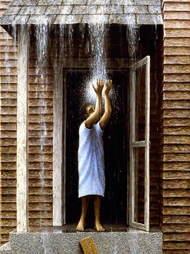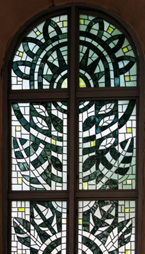Quotes by Tim Keller
Quotes by Tim Keller about the role of Christian artists
About cultural renewal
"I am often asked, “Should Christians be involved in shaping culture?” My answer is, “We can’t not be involved in shaping culture.” But I prefer the term “cultural renewal” to “culture shaping” or “cultural transformation.” For a possible model, think about the monks in the Middle Ages, who moved out through pagan Europe, inventing and establishing academies, universities, and hospitals. They transformed local economies and cared for the weak through these new institutions. They didn’t set out to take control of a pagan culture. They let the gospel change how they did their work — which meant they worked for others rather than for themselves. Christians today should strive to be a community that lives out this same kind of dynamic, which will bring the same kind of result."
About Christian subculture
"Many “Christian art” productions are in reality just ways of pulling artists out of the world and into the Christian subculture. In general, cooperation in cultural production should not mean Christians banding together to leave the big, bad world; rather, cooperation involves working together — even with nonbelievers — in order to serve the world. This cooperation is not likely to happen until greater numbers of Christians become more willing to embrace a less dualistic understanding of their faith."
About a Christian understanding of work and faith
"As we have seen, Christians make two opposing mistakes in addressing the idols of their vocational field. On the one hand, they may seal off their faith from their work, laboring according to the same values and practices that everyone else uses; on the other hand, they may loudly and clumsily declare their Christian faith to their coworkers, often without showing any grace and wisdom in the way they relate to people on the job."
"For many of us, it is obvious we are working for the Lord when we directly use our gifts to convey Christian messages. But we don’t always know how to work distinctively for the Lord while going about less obviously Christian cultural and vocational tasks. It is easy for a singer to feel he is using his gifts for Christ as he sings “Every Valley Shall Be Exalted” from Handel’s Messiah, but how does the gospel make the rest of his work distinctive? Is he just a singer who happens to be a Christian? Or is he a fully Christian singer whose art is shaped by the gospel every day of the week? How will his work be any different from that of a person with radically different beliefs about human nature, God, and the meaning of life? Will the only difference be that he doesn’t sleep with his co-stars or that he only sings religious music? Is career advancement his real motive for what he does, or is he consciously witnessing to the goodness of creation and the meaningfulness of life by the excellence of his art? Will the skill and commitment of his art always testify — even to the most skeptical people — that this world is not an accident, that it is coherent and beautiful, that we were created for a purpose?"
*******
Source: Tim Keller: Center Church: Doing Balanced, Gospel-Centered Ministry in Your City, Redeemer, 2012, chapter 26.
Tim Keller is an American pastor, theologian, and Christian apologist. He is the founding pastor of Redeemer Presbyterian Church in New York City, New York, and the author a number of The New York Times bestselling books. He is a graduate of Bucknell University (BA, 1972), Gordon-Conwell Theological Seminary (M.Div., 1975) and Westminster Theological Seminary, where he received his D.Min in 1981. He became a Christian while at Bucknell University, due to the ministry of InterVarsity Christian Fellowship, with which he later served as a staff member. He was ordained by the Presbyterian Church in America (PCA). He also served on the faculty of Westminster Theological Seminary, in Philadelphia, Pennsylvania, where he and his wife Kathy were involved in urban ministry. Keller was recruited by his denomination to start Redeemer Presbyterian Church in Manhattan in 1989. Today the church’s attendance is over 5,000 each week.






